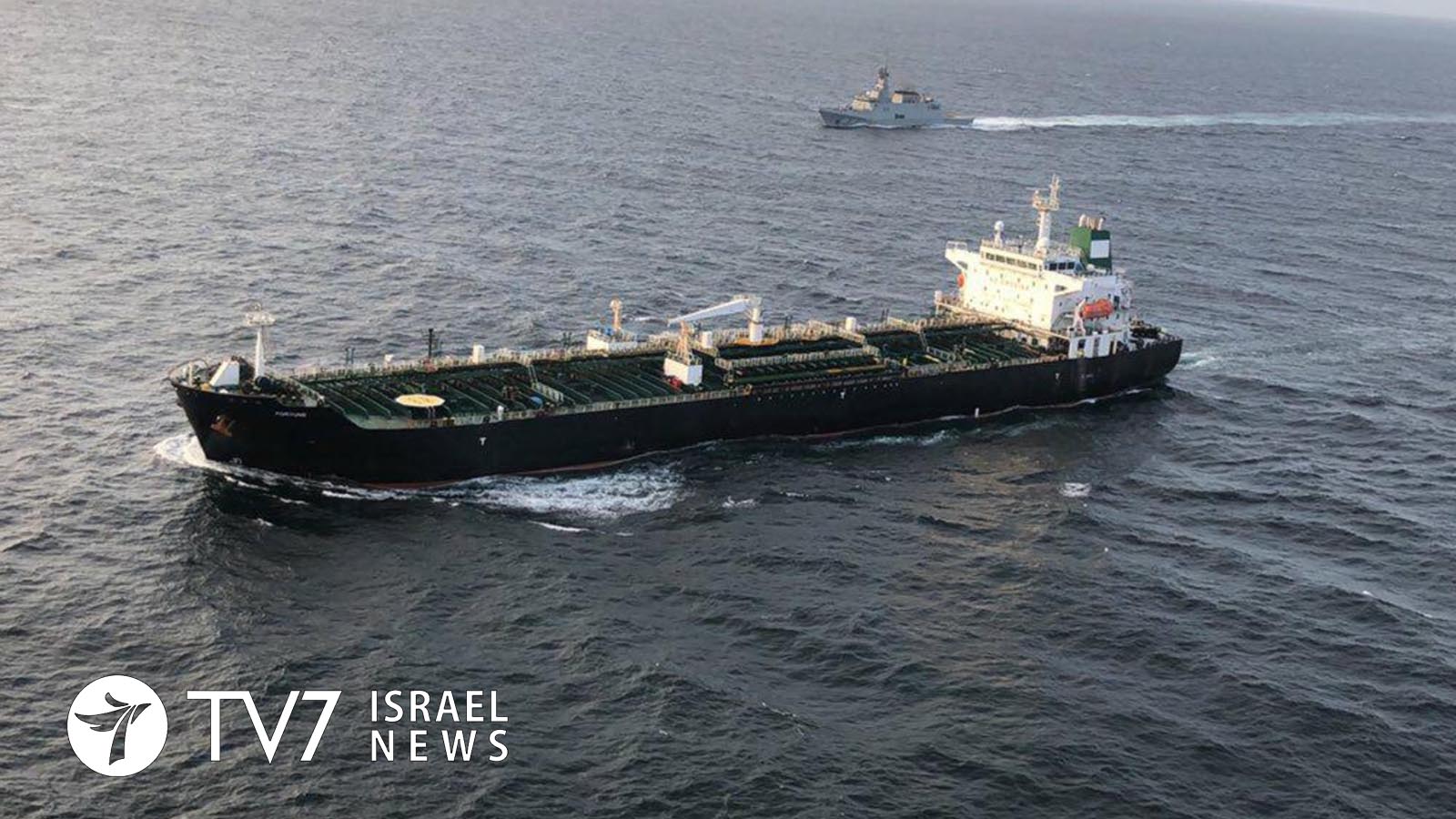The United States has filed a lawsuit to seize a cargo of oil it says came from Iran rather than Iraq.
The move indicates resolve on the part of the administration of US President Joe Biden to uphold American terrorism regulations, while expressing pursuit of a diplomatic solution to the Iranian nuclear dispute.
Following investigation by the US Federal Bureau of Investigation (FBI) and Department of Homeland Security, Iran sought to mask the origin of its oil by repeatedly transferring it to several vessels before it was ultimately shipped on the Liberian-flagged Achilleas tanker destined for China.
According to the US, the smuggling attempt involved multiple entities affiliated with Iran’s Islamic Revolutionary Guards Corps (IRGC) and its elite Quds Force – both of which have been designated by Washington as Foreign Terrorist Organizations (FTOs).
“Participants in the scheme attempted to disguise the origin of the oil using ship-to-ship transfers, falsified documents, and other means, and provided a fraudulent bill of lading to deceive the owners of the Achilleas into loading the oil in question,” charged the US Justice Department in a statement.
The US maintains that the Achilleas tanker is now subject to seizure based on terrorism forfeiture law. The vessel is now sailing in the direction of the US, according to a source cited by Reuters at the tanker’s Greek operator Capital Ship Management, from its last reported position off the coast of South America. Refinitiv ship tracking data indicates it will reportedly dock at the Gulf port of Galveston on 15 February.
Iran did not issue an immediate response to the seizure.
This is not the first time Washington has enacted such measures against Tehran. The same forfeiture procedure was imposed in 2020 on suspected-Iranian gasoline cargoes shipped to Venezuela aboard four tankers.
Relations between the US and Iran have been strained for decades, and further deteriorated after former US President Donald Trump withdrew from the international nuclear agreement with the Islamic Republic and re-imposed harsh sanctions that had been lifted by the deal.
The Biden administration has indicated willingness to return to the Joint Comprehensive Plan of Action (JCPOA) accord on condition Iran first adhere its terms, including possible renegotiation of the original 2015 deal.
The Islamic Republic has adamantly ruled out any amendment to the JCPOA. In opening remarks at Tehran’s weekly cabinet session, Iranian President Hassan Rouhani vowed that “Not a single paragraph in the nuclear deal will change, nor will there be any new negotiations.”
The Iranian “head-of-state,” whose actions and rhetoric are in full coordination with the Islamic Republic’s Supreme Leader Ayatollah Ali Khamenei, went on to dismiss any suggested changes by the US or Europe as “irrelevant and useless.”
Tehran has declared that it will not reverse nuclear development in breach of international obligations far exceeding uranium enrichment levels for civilian use if Washington does not first recommit to the JCPOA.
Desperate for relief from the “maximum pressure campaign” enacted during the Trump era while not risking a loss of honor, however, led to a proposal by Iranian Foreign Minister Mohammad Javad Zarif for European Union Foreign Policy Chief Josep Borrell to mediate the dispute. During an exclusive interview with CNN’s Christiane Amanpour, the top Iranian diplomat suggested Borrell could “Choreograph the actions that are needed to be taken by the United States and the actions that are needed to be taken by Iran.” He also insisted that unlike the US, his nation has upheld its obligations to the JCPOA.
Zarif’s claim has long been rejected by the International Atomic Energy Agency (IAEA) nuclear watchdog.
IAEA Director General Rafael Mariano Grossi expressed deep concern over Iran’s lack of veracity in remarks to the organization’s Board of Governors on 18 November 2020, saying that, “This issue has been ongoing for quite a while already, you can even – depending on the metrics you want to choose – it is almost two years since this (undeclared nuclear material) traces were found for the first time and then there was a process of exchanges with Iran and the latest information we got them, as I said, what technically not credible. So this is why, now, we are saying – perhaps I don’t know if we can call about patience or impatience, but we believe that they need to give us information which is credible. What they are telling us from a technical point of view doesn’t add up.”
Meanwhile, in another possible gesture to appear conciliatory, Iran has agreed to free crew members of the South Korean-flagged Hankuk Chemi ship seized by the IRGC on 4 January near the strategic Strait of Hormuz.
“Following a request by the South Korean government…, the crew of the Korean ship, which was detained on charges of causing environmental pollution in the Persian Gulf, have received permission to leave the country in a humanitarian move by Iran,” Iranian Foreign Ministry Spokesman Saeed Khatibzadeh told state media on Tuesday, adding that the alleged “legal case against the vessel and its captain continues.”
Iranian Deputy Foreign Minister Abbas Araqchi discussed the release of the 19 crew members in a telephone conversation with his South Korean counterpart Choi Jong-kun, as well as Tehran’s insistence that Seoul agree unfreeze $7 billion of Iranian funds because of Washington’s sanctions.
“The two sides…shared the view that the release of the sailors was an important first step to restore trust between the two countries and they will work to resolve the issue of frozen Iranian assets in South Korean banks,” South Korea’s Foreign Ministry said in a statement, while disclosing that, “Choi also said South Korea will do what it can in a speedy manner while discussing consultations with the United States on the issue.”
South Korea had previously charged that the detention of the Hankuk Chemi and its sailors was tantamount to hostage-taking in return for the release of the Iranian funds.
